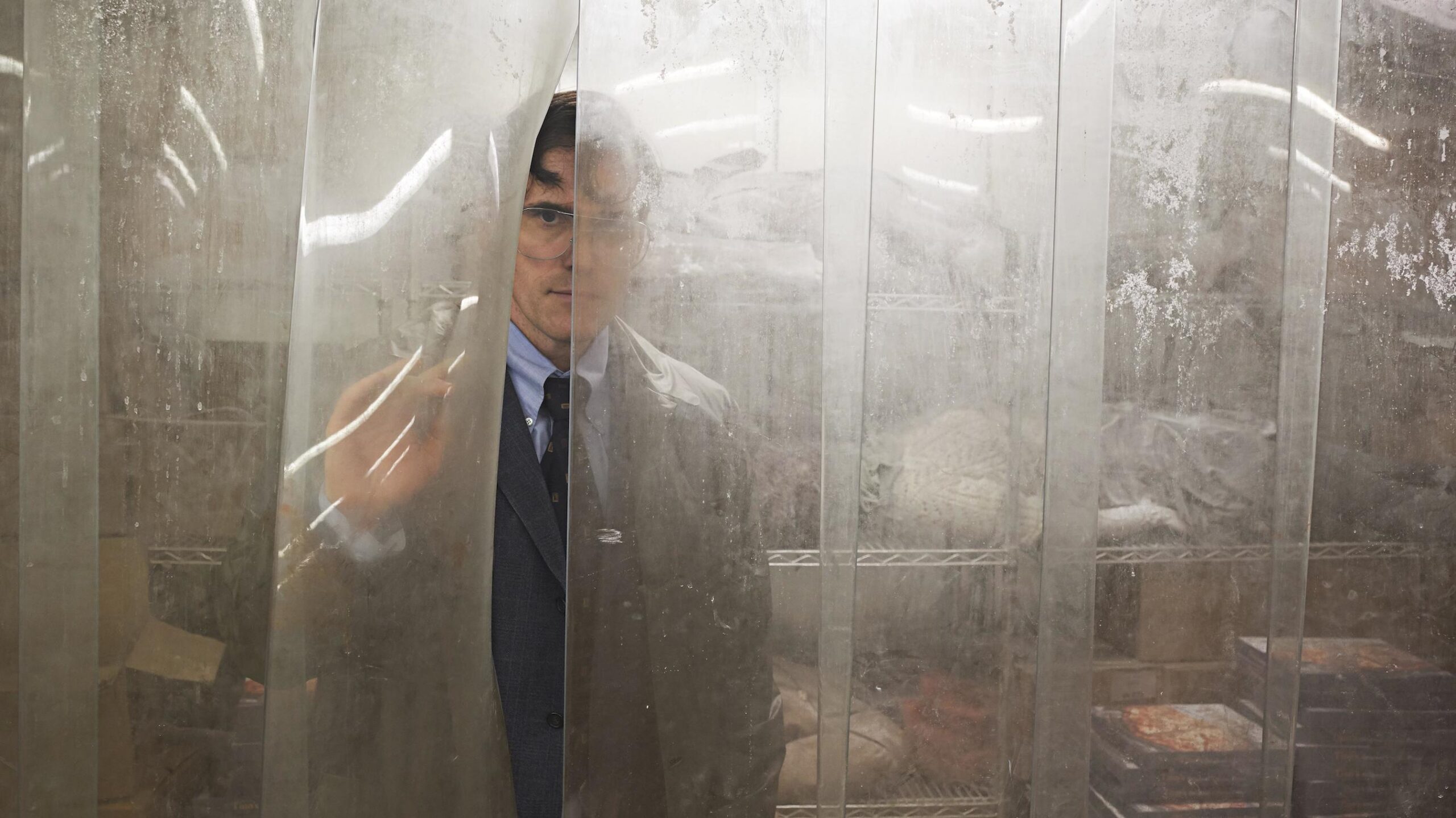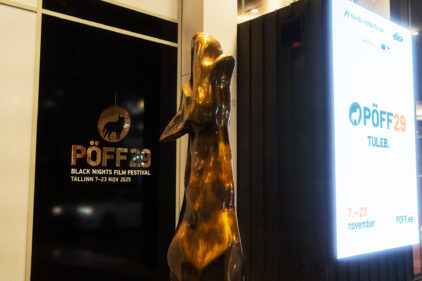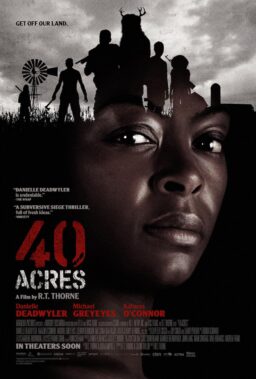One of my favorite memories of Cannes is of being in the journalists’ wi-fi lounge in 2011, watching a press conference for “Melancholia” on a TV. In a vaguely free-associative ramble, Lars von Trier suddenly decided to compare himself to a Nazi. What descended on the room felt less like a hush than a wave, as if everyone present had the same thought simultaneously: “Oh, this is the thing we will now spend the rest of the festival talking about.”
Indeed it was. The next day, the festival’s board of directors declared Von Trier persona non grata, just before he was scheduled to give a roundtable interview in Mougins, France, outside of Cannes. As it happens, I was there. A publicist updated us on the situation, and Von Trier ambled down a hill to the table where we were seated. “If any of you would like to hit me, you’re perfectly welcome,” I quoted him in Time Out Chicago at the time, in a report that’s no longer online. “I must warn you that I might enjoy it.”
Apologizing for what he had said, he explained that in Danish slang, “Nazi” is used to stand in for “German.” (That particular portion of his remarks concerned his heritage.) He added, “I’m joking a lot. I think you need, as journalists, even though you don’t find it funny, to see my intention.”
In defense of Cannes, The New Yorker’s Richard Brody, among others, pointed out that Gilles Jacob, then the president of the festival and a Jew who spent World War II in hiding, “experienced Nazi occupation and knows it’s not a joke.” Was the festival issuing a proper punishment for Von Trier’s insensitivity? Was it squelching his free speech—or engaging in hypocrisy? (That year, Emir Kusturica, a director born in Sarajevo who in the past had faced criticism for not publicly denouncing Slobodan Milosevic, served as the Un Certain Regard jury president.) Was Cannes simply showing that it lacked a sense of humor, something that anyone who has spent more than a day here knows with a vengeance?
Whatever your thoughts on it, the ban remained until this year, when the festival, in the wake of ample speculation, invited Von Trier back to show “The House That Jack Built,” out of competition—a downgrade considering that Von Trier is a Palme d’Or winner. The filmmaker attended the first official screening on Monday night but will not give a press conference during his time at Cannes, which is disappointing all around. It would be much more fun for all involved, including the comedy-starved press corps, if Von Trier opened his mouth again.
“The House That Jack Built,” which screened for the press Tuesday morning, alludes to the Cannes fracas but takes some squinting to read as an apologetic film. Those of us who have defended Von Trier in the past—arguing that his penchant for building movies around female martyrs wasn’t actually rooted in misogyny, and that his supposed anti-Americanism was something more complex, a found vision of the United States based on the impressions of someone who had never visited the country—well, we have our work cut out for us. If you enjoyed the long scenes of degradation in “Nymphomaniac: Vol. 2,” you’ll love “The House That Jack Built.”
Off-putting and grotesque even by Von Trier standards, the film is constructed around the confessions of a serial killer named Jack (Matt Dillon), who as the film opens—interestingly, it was screened without the customary “Festival de Cannes” bumper—is talking in voice-over with an unseen interlocutor (Bruno Ganz). Anyone who has read the classics will quickly comprehend what’s going on.
From his scores of murder victims, Jack selects the stories of several women. The first (Uma Thurman) asked a little too much roadside assistance from him after suffering a broken jack. Later, we learn that he preyed on a widow (Siobhan Fallon Hogan) and a ditzy blonde (Riley Keough), who is subject to a graphically rendered act of violence that appears designed to court accusations of misogyny. (Cannes included a possibly unprecedented warning on daily schedules—”some scenes are likely to offend spectator sensitivity”—but I can’t say I was as shocked by the explicitness here as I was in “Antichrist,” which includes an analogous scene.)
The sequence recounting the murder of Keough’s character, whom Jack insists on nicknaming “Simple,” is one of the few in the movie that has real suspense, in part because Von Trier has bothered to write what sounds like a genuine interaction between two characters. The first half, if not more, of “The House That Jack Built” is a slow, unpleasant, sloppily scripted wallow in cruelty that’s not nearly as effective as “Dogville” or “Dancer in the Dark” on a dramatic level.
The question, as usual with Von Trier, is whether that cruelty is justified by some artistic end. (For many, it may not be.) Still, “The House That Jack Built” offers enough of substance that it’s difficult to dismiss outright. Returning to the structure of “Nymphomaniac,” in which a character’s life story is intercut with references to art and history, Von Trier invites an autobiographical reading with clips from his own movies and a digression devoted to Albert Speer, the Nazi architect who figured into the infamous “Melancholia” press conference.
The central conceit seems to rest on a half-baked parallel between Von Trier’s own tendencies as an auteur and the modus operandi of a serial killer. Jack is portrayed as an obsessive-compulsive weirdo who passes himself off under the name “Mr. Sophistication,” which sounds like a pretty good description of Von Trier. Despite insisting to Ganz’s character that he murders (i.e., makes movies about) men as well as women, Jack always seems more fixated on the women. And Jack, despite being rotten from the beginning—we see him as a child clipping the foot off a bird—repeatedly has his sins forgiven. In Von Trier’s case, forgiveness may come in the form of praise from critics like me, or, for that matter, from repeated festival invitations.
While there’s defensible material here, one has to swallow a lot of nastiness to get to it, not least when Jack shoots a mother and her two sons with the cold calculation of a hunter or when the character, in Von Trier’s most thinkpiece-ready bit of trolling, parrots the rhetoric of men’s rights activists. (He talks about the “injustice'” of being born male, claiming that that means he is always perceived as being at fault.)
After unforgettably blasting David Bowie’s “Young Americans” over the end credits of “Dogville,” Von Trier makes less effective use of Bowie’s “Fame” throughout “The House That Jack Built.” There are also references to Bob Dylan and a rousing closing-credits rendition of “Hit the Road Jack.” Perhaps the song is Von Trier’s way of inviting the festival to boot him again.












